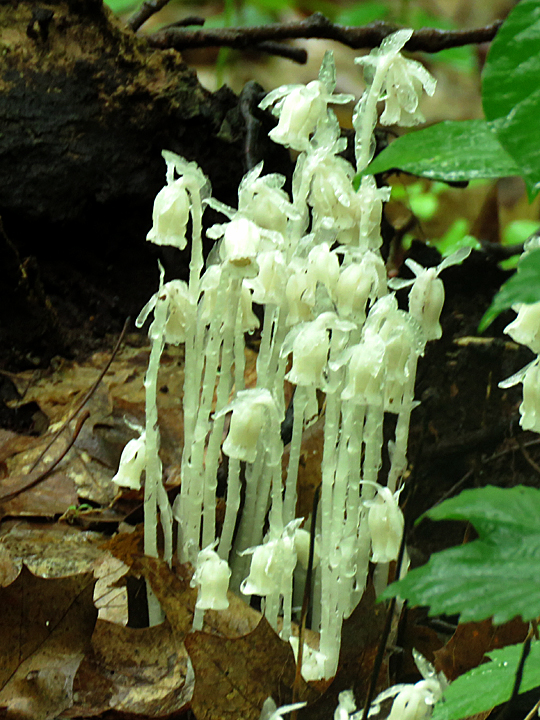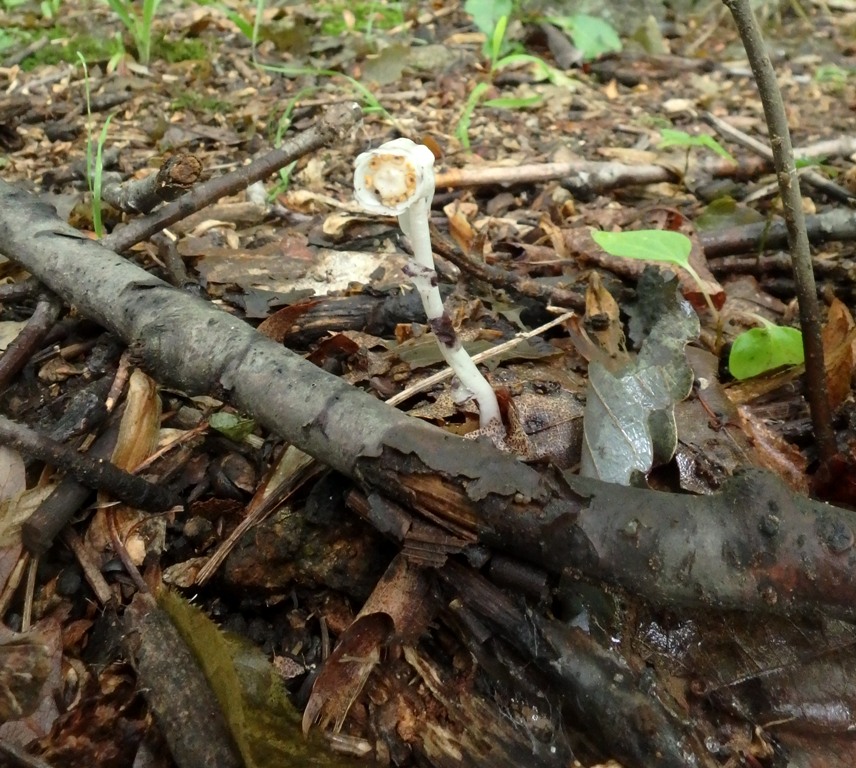Mariton: What are these things?
by Tim Burris, Preserve Manager.

A group of Indian Pipes. Photo by Carole Mebus.
Indian Pipes (Monotropa uniflora) are blooming in the woods at Mariton. These wonderful white plants are really amazing. These are NOT mushrooms, but are actually flowering plants. If you are careful, you can turn up the blossom and look inside to see all the parts of a normal flower. The difference from other plants is that Indian Pipes don’t have chlorophyll and they cannot produce their own food through photosynthesis. Since people of my generation grew up with the definition of a plant revolving around photosynthesis, Indian Pipes challenged our understanding .

You can see the pollen producing stamens in this photo of an upturned Indian Pipe.
For years, I had known them to be parasitic. Since they have no chlorophyll, it was assumed they were free-loading off of nearby plants in order to get the nutrients (carbohydrates) that are usually produced by photosynthesis.
As our understanding of mycorrhizal fungi increases, we are stunned by the complexities of the relationships between plants made possible by these amazing fungal organisms. While Indian Pipes still rely on other organisms to get their nutrition (through the benefit of mycorrhizae), I no longer view them as free-loaders. Many native plants rely on mycorrhizal fungi for their health, so in that respect Indian Pipes aren’t much different.
